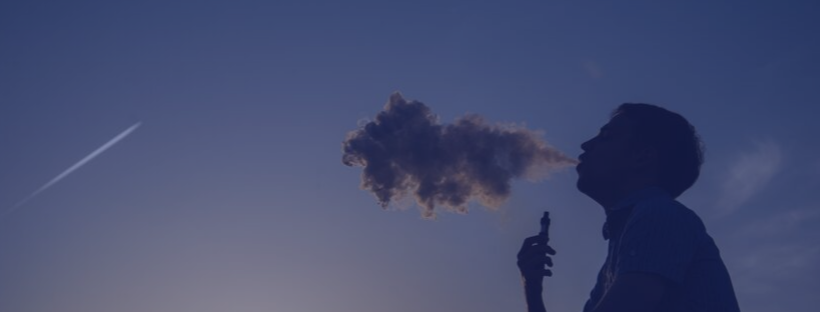
By Yaël Ossowski
When the state acts to protect our children, we trust it will do so with knowledge and responsibility. Considering the rise in availability of vaping products this last decade, it is understandable that the State Legislature has been called on to act.
But if Hawaii curbs the sale of flavored vaping products — intended for adult former smokers — this will not eradicate the problem of youth access. Rather, it may make it even worse.
Health committee chair Rep. Ryan Yamane admitted as much last week, stating “I don’t want our youth who are electronic savvy to get access to unknown supplies or, who knows, black-market cartridges laced with dangerous substances through the internet where we don’t know where it’s coming from.”
What Yamane alludes to is the 2019 EVALI epidemic, when illicit cannabis vaping devices made their way into the hands of thousands of people across the country, causing death and serious lung injuries that spread panic around vaping products. There were 4 cases in Hawaii.
The CDC has concluded that virtually every case was linked to a supply of bootleg THC vape cartridges laced with Vitamin E Acetate. While these products are far removed from the vaping devices found in convenience stores and vape shops, even though activists have attempted to connect them, the EVALI crisis demonstrates the ills associated with unregulated black market products.
Massachusetts enacted a ban on flavored vaping products in 2019 and the results should raise caution. Since the ban, a massive influx of smuggled tobacco and vape products has resulted in a thriving black market, siphoning tax revenue for the state, criminalizing adult consumers trying to make the healthier choice, and exposing kids to black market dealers who don’t ask for ID.
Making a product illegal will not necessarily make the demand for it go away, as the era of Prohibition taught us.
If Hawaii moves forward with a vaping flavor ban, they’ll not only endanger our kids, but they will also push adult consumers to switch back to smoking combustible tobacco, a disaster for public health. Over 1,400 Hawaiians lose their lives to smoking-related illnesses each year. As found in multiple studies and even Public Health England, vapers benefit from 95% less harm than cigarettes.
Fortunately, more than 7% of Hawaii’s adult population uses vaping products, accounting for over 100,000 Hawaiians who have switched to a better alternative, including our elderly. According to data from the Hawaii Journal of Medicine and Public Health, the largest demographic of Hawaiian vapers are actually over 65.
If those retirees have their smoking cession options taken away, it will not only nudge them back to smoking and put their health at risk, but it would cost Hawaii dearly. Smoking-related healthcare costs already cost Hawaiian taxpayers $141.7 million annually, not to mention the pain of long-term illnesses and deaths experienced by many families.
Our goal should be to expand people’s choices to quitting tobacco, not to limit them severely.
What’s more, similar bans to what is proposed here in Hawaii have actually been demonstrated to increase smoking rates among youth in jurisdictions like San Francisco. Data from the Journal of the American Medicine Association shows that the flavored vaping product ban caused increased smoking rates for youth aged 18 and younger.
If we are concerned about youth gaining access to vaping products, we need to ask why it is happening. Are retailers breaking the law and selling it to them? Are they asking older friends or family to acquire for them? Will adult users of these products still have less harmful alternatives to cigarettes if we outlaw them? These are important considerations.
Teenagers seek out risky behavior, whether it is drugs, alcohol, or vaping devices. Education and parental responsibility, however, would be much more effective than a sweeping ban that would boost a new black market and deprive responsible adults of products they have sought to improve their lives. This is the choice Hawaii will have to make.
Yaël Ossowski is deputy director at the Consumer Choice Center.



